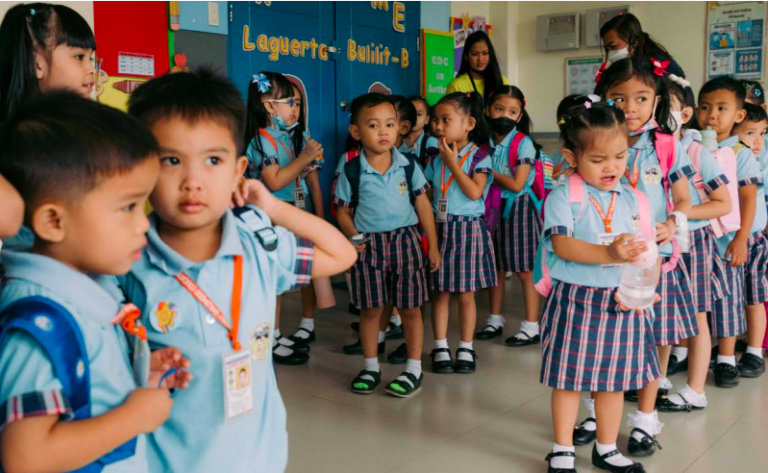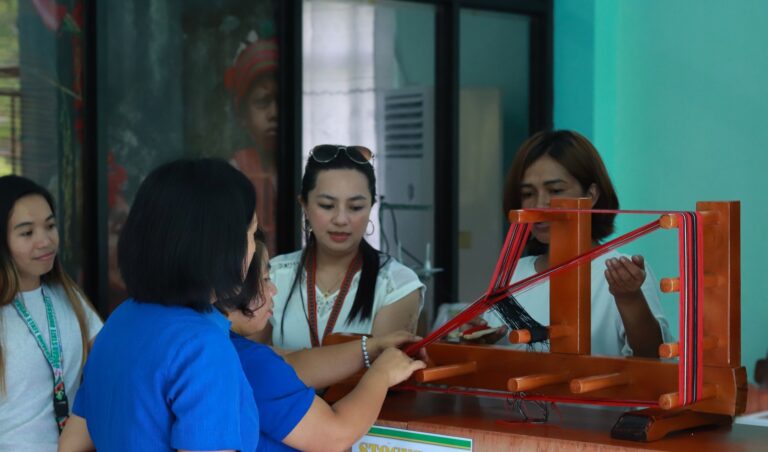1 of 3 Filipino children suffers from stunted growth – PIDS study
by The EdLines | May 16, 2024

A study conducted by the Philippine Institute for Development Studies (PIDS) revealed that 33 percent of Filipino children suffer from stunted growth due to a lack of investments and inadequate access to quality childcare services.
The study, titled “Behind the Slow Start: An Assessment of Early Childhood Care and Development (ECCD) in the Philippines,” highlights the impact of insufficient early childcare and prenatal interventions on childhood stunting.
Additionally, the white paper identifies challenges such as underinvestment, weak institutions, and fragmented governance hindering the implementation of necessary interventions.
Despite legislative efforts to improve early education, health and nutrition services, the study finds low participation rates among children aged 3 to 4 in schools. This, despite the implementation of legislations such as the Kindergarten Education Act, the Enhanced Basic Education Act and the Early Years Act, the study said.
“While [the participation rate] recovered to 20 percent in 2022, it still fell below pre-pandemic levels,” according to the authors.
Maternal and child undernutrition, coupled with limited access to basic health services, contribute to chronic malnutrition and increased mortality risks, it said.
The study said that approximately 14 percent of Filipino women of reproductive age are undernourished and evidence shows that malnourished mothers are more likely to give birth to infants with low birth weights, resulting in both short term and long term consequences.
Only a quarter of Filipino children meet recommended energy intake levels, indicating persistent nutritional challenges, particularly among low-income households. This finding indicates the need to address nutritional needs of children, especially among aged 6-12 months from low income households.
According to the 2022 Annual Poverty Indicator, only 23% of children benefited from school-based feeding programs.
“Despite government efforts, access remains limited. We observe a higher percentage of children aged four years old receiving government feeding programs, which reflects the implementation of school feeding initiatives in daycare centers and kindergarten schools,” the authors said.
The study underscores the need for innovative financing mechanisms and science-based communication campaigns to enhance participation in early education and access to essential health services. It also criticizes the severe underinvestment in ECCD and calls for increased public spending and strategic resource allocation to address health, nutrition, and education outcomes effectively.
Short of investments
“Overall, the current supply of capital investments for ECCD in the country falls short of meeting the goal of universal access for children aged 3-34 to ECCD services. The country’s current facilities are insufficient by around 33,000 to meet the 96,000 daycare/child development centers required to meet 100% of the demand,” the report reads.
Findings show that the government allocates only P3,870 per child for health, significantly below the average government spending per person on health in lower- middle-income countries, which is $150 or over P6,820.
Governance and implementation challenges, including overlapping roles, poor coordination and limited technical capacity further exacerbate the situation.
Recommendations include strengthening multi-sectoral collaboration, clarifying responsibilities and enhancing the capacity of governing bodies to ensure effective policy implementation.
Science-based approach
Second Congressional Commission on Education (EDCOM 2) Executive Director Karol Mark Yee said the study’s findings provide valuable insights for policymakers, emphasizing the importance of evidence-based interventions and strategic investments to address the underlying issues in the Philippine education sector.
“EDCOM 2 welcomes the findings of the study conducted by PIDS. Our recommendations on the programmatic and legislative reforms to our education systems are based on empirical evidence from these kinds of studies,” Yee said.
For his part, Senator Win Gatchalian, co-chairperson of EDCOM 2, said early childhood care and education should be a shared responsibility between education stakeholders and other members of communities.
“Moving forward, local government units should also have more accountability in ensuring that the benefits of ECCD programs, including health and nutrition interventions, are felt by every Filipino child,” he said.
SHARE THIS NEWS!
RELATED ARTICLES



